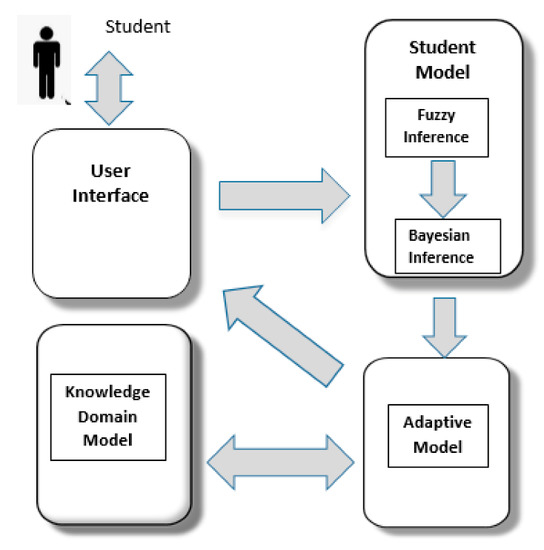Getting The Bioinformatics Tutor To Work
Getting The Bioinformatics Tutor To Work
Blog Article
Fascination About Bioinformatics Tutor
Table of ContentsOur Bioinformatics Tutor PDFsThe 3-Minute Rule for Bioinformatics TutorThe Only Guide to Bioinformatics TutorThe Single Strategy To Use For Bioinformatics TutorBioinformatics Tutor - An Overview
Of the total amount individuals associated with the training, 80% were pupils from public higher education organizations, while the staying 20% originated from exclusive organizations. To qualify for a certification of involvement, pupils were required to participate in at the very least 90% of the total training hours. As an outcome of this need, an excellent 95% of the individuals effectively acquired their certificates, having not just satisfied the minimum presence standards but also completed all assigned tasks throughout the training.
Throughout the elevation of the COVID-19 pandemic, specifically between June and August 2020, the task team was entrusted with organizing specialized training in bioinformatics. This training was especially focused on students from the research group Center for Research in Applied Computing at the Federal College of Pará (UFRA) The adaptation to remote learning platforms as a result of the pandemic produced an opportunity to explore new training techniques and electronic tools that boosted both reach and efficiency.
This training course was made to supply an obtainable yet comprehensive review of Artificial Knowledge methods, especially as used in bioinformatics (Bioinformatics Tutor). This virtual layout allowed participation from trainees throughout Brazil, many of whom might not have had the chance to go to in-person sessions.
Rumored Buzz on Bioinformatics Tutor
Around 50% of the complete training hours were devoted to practical activities where students built intelligent models and applications in a variety of scientific domains, consisting of genetics, molecular biology, and ecological information analysis. These systems allowed students to engage in real-time data control, version training, and formula experimentation.
The training course brought in 80 participants in overall. Sixty of them were connected with numerous college establishments in the state of Pará, while the remaining twenty came from establishments found in 5 various other Brazilian states. This broad geographical representation highlighted the nationwide passion in bioinformatics and the expanding demand for specialized skills around. By presenting Expert system in a pertinent and sensible context, the campaign offered to connect the void in between concept and real-world application, supplying pupils with a strong structure for future study or employment in the area.
The training effort formed part of a wider scholastic outreach initiative known as the Bioinformatics when traveling project. This job has, throughout the years, presented lots of students to the world of bioinformatics and computational biology. The occasions held under this umbrella initiative have actually happened throughout multiple areas and years, as summed up in Table 1 (List of occasions, places, years, and complete numbers of trainees and teachers)
Numerous of these groups, originally brought with each other by their engagement in training occasions, have actually because gone on to create independent clinical research study in partnership with regional scholastic establishments. The training not just cultivated clinical reasoning Look At This within the context of bioinformatics however likewise sparked collective connections that extended past the training setting.
Fascination About Bioinformatics Tutor
The same group, excluding IH and RR, likewise acted as tutors for the practical training modules. Financing for the project was given via the give 88887.200562/ 2018-00 from CAPES.
The Federal University of Pará's Office of Study (PROPESP/UFPA) also supplied financial backing, particularly for the production of the final manuscript. The writers proclaim no commercial or monetary disputes of passion that might have influenced the research study. All viewpoints and analyses expressed in this post are entirely those of the writers and do not necessarily show those of their corresponding organizations, the author, editors, or reviewers included in the publication process.

The Bioinformatics Tutor Ideas
From a pedagogical point of view, the training approach made use of in the training was intentionally interactive. Classes were performed in a manner that urged student engagement and discussion, surpassing rote memorization to discover how ideas are created, applied in every day life, and evaluated in scholastic setups. The training philosophy concentrated on nurturing both strong and having a hard time pupils, providing personalized support, and structure self-confidence through sustained mentorship and perseverance.
Each team, including around 36 participants, was supported by 3 coaches-- a lot of whom were postdoctoral scientists with customized knowledge. These mentors not just aided create the group jobs however additionally facilitated their execution, ensuring that each study concern was both relevant and suitably difficult. The objective was to supply a biologically realistic context that individuals could explore with open-ended purposes and accessibility to this link curated datasets.
For extra understandings right into the methodology and end results of this project-based understanding approach, viewers are guided to S1 Text, that includes in-depth descriptions of the instructional structure, assessment strategies, and task styles made use of in the training sessions.
Bioinformatics Tutor Can Be Fun For Everyone
Of the overall individuals entailed in the training, 80% were students from public greater education organizations, while the continuing to be 20% came from private organizations. To certify for a certificate of engagement, pupils were required to attend at least 90% of the overall training hours. Notably, beyond the trainees who signed up in the training sessions, 7 experienced trainers got involved in supplying the courses, while three dedicated research professors collaborated the total training procedure. About 50% of the complete training hours were committed to sensible tasks where students built smart versions and applications in an array of clinical domain names, including genes, molecular biology, and ecological information evaluation. The training not just fostered scientific thinking within the context of bioinformatics but also triggered joint partnerships that prolonged beyond the training environment.
Report this page